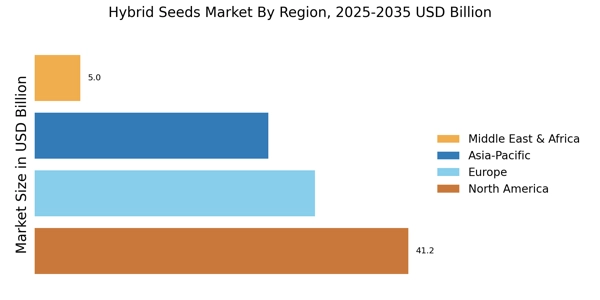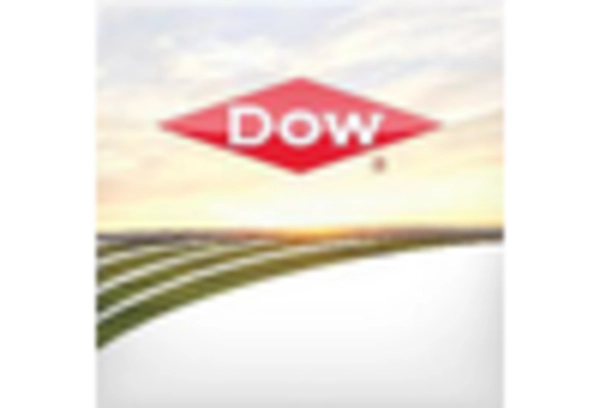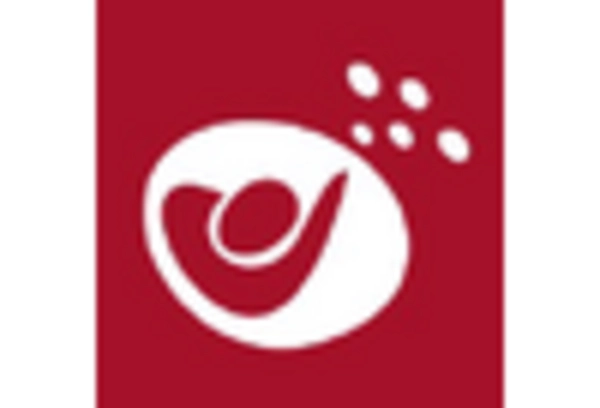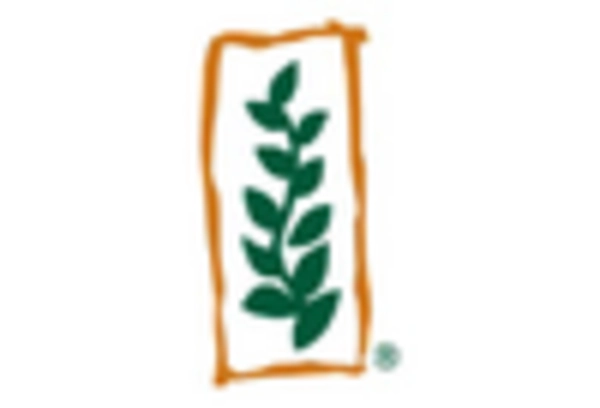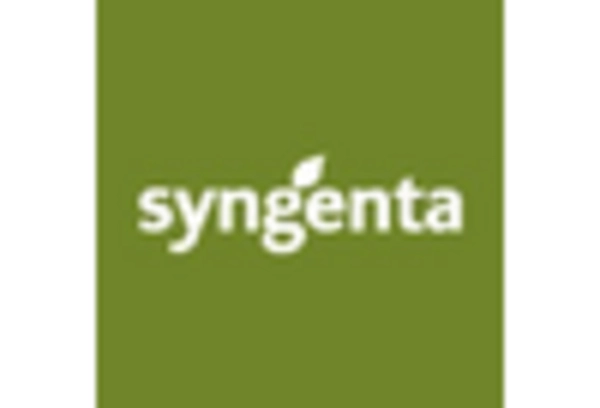Global Food Security Challenges
The Hybrid Seeds Market is significantly impacted by the challenges associated with global food security. As climate change and population growth threaten food supply chains, hybrid seeds offer a viable solution to enhance agricultural productivity. These seeds are designed to thrive in diverse environmental conditions, making them essential for regions facing food scarcity. Recent studies suggest that the adoption of hybrid seeds could potentially increase food production by 30% in vulnerable areas. This urgency to address food security issues positions the Hybrid Seeds Market as a critical player in the quest for sustainable solutions to global hunger.
Government Support and Policies
Government support and favorable policies are pivotal drivers in the Hybrid Seeds Market. Many governments are implementing initiatives to promote the use of hybrid seeds as part of their agricultural strategies. These policies often include subsidies, research funding, and educational programs aimed at encouraging farmers to adopt hybrid varieties. For instance, certain regions have reported a 15-20% increase in hybrid seed adoption due to government incentives. Such support not only boosts the Hybrid Seeds Market but also fosters a more resilient agricultural sector capable of meeting future food security challenges.
Increasing Demand for High-Yield Crops
The Hybrid Seeds Market is experiencing a surge in demand for high-yield crops, driven by the need to enhance food production. As populations grow, the pressure to produce more food with limited arable land intensifies. Hybrid seeds, known for their superior yield potential, are becoming increasingly popular among farmers. According to recent data, hybrid varieties can yield up to 20-30% more than traditional seeds. This trend is likely to continue as agricultural practices evolve to meet the needs of a growing population. The Hybrid Seeds Market is thus positioned to benefit from this increasing demand, as farmers seek solutions that maximize productivity while ensuring sustainability.
Advancements in Agricultural Biotechnology
The Hybrid Seeds Market is significantly influenced by advancements in agricultural biotechnology. Innovations such as genetic modification and molecular breeding techniques are enhancing the development of hybrid seeds that are more resilient to pests, diseases, and environmental stresses. These advancements not only improve crop performance but also reduce the reliance on chemical inputs, aligning with sustainable farming practices. The market for biotech seeds is projected to grow, with hybrid seeds playing a crucial role in this expansion. As farmers increasingly adopt these technologies, the Hybrid Seeds Market is likely to see a corresponding rise in demand for innovative seed solutions.
Rising Awareness of Sustainable Agriculture
The Hybrid Seeds Market is witnessing a growing awareness of sustainable agriculture practices among consumers and farmers alike. As environmental concerns rise, there is an increasing preference for seeds that contribute to sustainable farming. Hybrid seeds often require fewer resources, such as water and fertilizers, while still providing high yields. This aligns with the global shift towards eco-friendly agricultural practices. Market data indicates that the demand for sustainable seed options is expected to grow by approximately 10% annually. Consequently, the Hybrid Seeds Market is likely to capitalize on this trend, offering products that meet the evolving expectations of environmentally conscious consumers.



